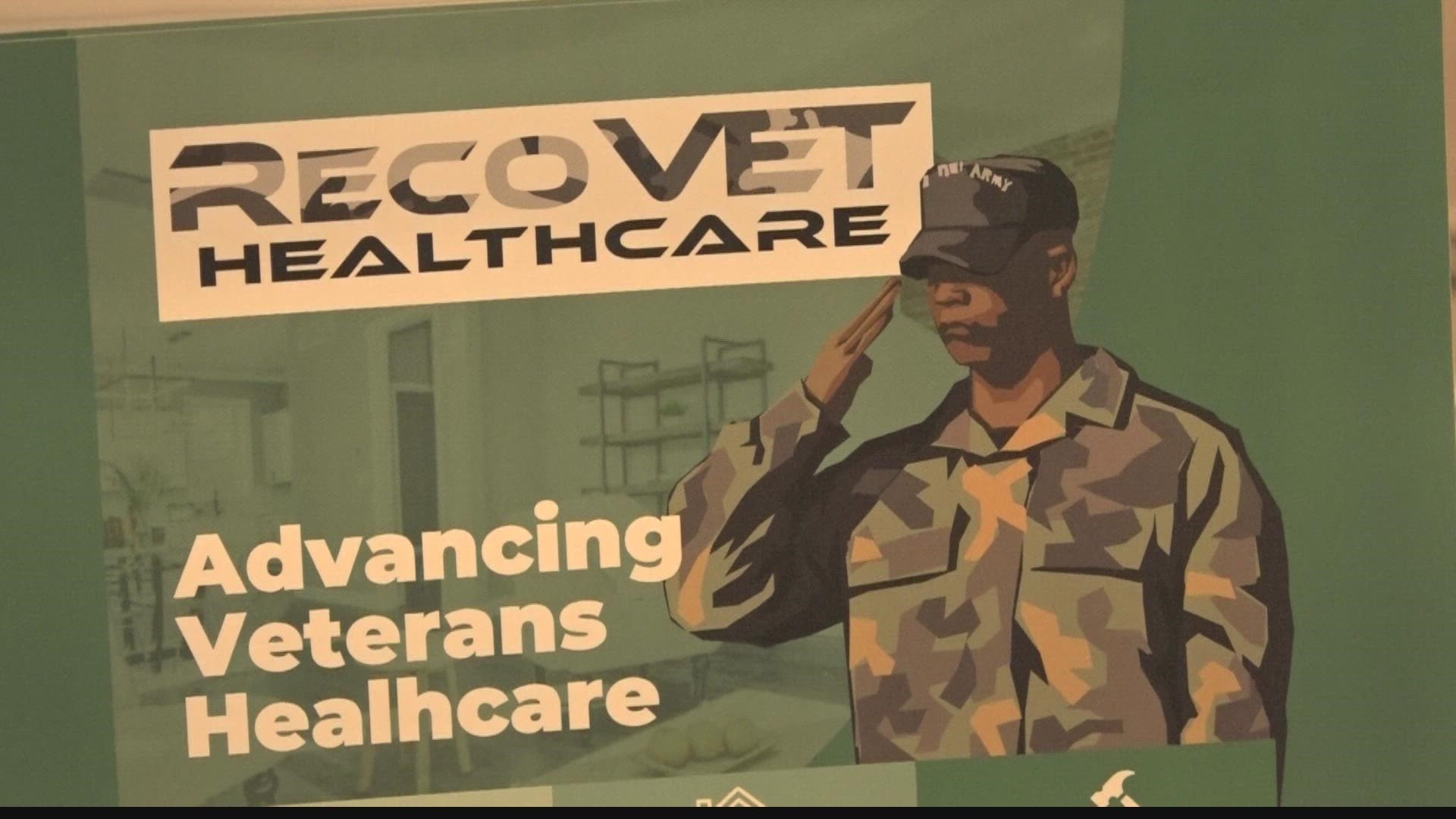ST. LOUIS — RecoVet House is a new chemical dependency treatment and job training facility serving military veterans in St. Louis.
It’s a residential program. Participants live there according to a quote from the Book of Proverbs, “As iron sharpens iron, so one person sharpens another.”
Nonprofit RecoVet operates the house.
Inside a front room of the sprawling facility, two house managers sit at a circular table, visiting with a program participant.
“So, what’s your comfort level at the house?” one of the house managers asked the participant.
This unidentified program participant was not new, and it was apparent he was having success.
“I had an appointment at ARCA, yesterday,” he said. “Got my Vivitrol shot.”
Vivitrol is a medication used to treat alcohol abuse. It is used only in people who have been able to stop drinking for some time before starting treatment with Naltrexone.
Naltrexone is a medication used to prevent people who have been addicted to certain drugs, like opiates, from taking them again.
Indeed, there is restoration and redemption taking shape within RecoVet House. House managers gave 5 On Your Side a tour of the facility in May, but asked the location not be revealed to protect their residents.
If you do the math, here, and residents do plenty of math in the classroom, you’ll find the RecoVet House program for veterans is quickly adding up to something significant.
RecoVet Executive Director Andrew Robinson did the math.
“We sent our first group to Poplar Bluff and seven out of the nine got jobs,” said Robinson. “We’re on track to do it again, this time, with 14.”
ARCA – Assisted Recovery Centers of America – provides medically-assisted treatment and psychiatric services at RecoVet House.
ARCA Housing Director Jordan Hampton said they are trying to improve the quality of life for addicted veterans without the use of drugs or alcohol, whether it’s their first attempt, or their twelfth.
“I think the beauty of housing is you can create something spiritual inside of it,” said Hampton. “And that reaches one’s heart and then compels them in this process.”
Dr. Percy Menzies is the founder of ARCA. When it comes to addiction recovery, “Veterans have almost fallen through the crack,” said Menzies. “We saw the figures of so many people desperately seeking help and not getting it.”
Menzies lends his support to the residential program because of his belief that job training is such a huge part of successful addiction recovery.
“Almost all those who go through job training here receive job offers,” said Menzies, “and nothing is as important as being able to find a job when it comes to being on your feet again.”
A reporter eavesdropping on the way the classroom overheard how program participants talk to each other.
“You’ve come a long way in a year, bro,” said one program participant.
“Thank you,” said another.
A tone of civility and positivity is prevalent throughout the house. It is reflected in positive sayings that decorate the walls, some on posters, some in handwritten messages.
In the classroom, RecoVet House residents receive six weeks of hands-on construction training. That’s where the math comes in.
Program participant Tracy McNew said she was in her third day.
“It’s going really well,” she said.
It was unclear whether things were actually going well, or if McNew was practicing “act as if,” a 12-step phenomenon involving putting on a positive attitude, also known as 'fake it ‘til you make it.'
In either case, McNew was hopeful.
“Wasn’t what I thought it was going to be,” she added. “There’s a lot of math involved.”
Another program participant, Kyle Green, said, “This is my second try at recovery, and I just feel like there’s so many options here.”
Perhaps one of those positive signs on display sums it up.
“It’s never too late to live happily ever after," one sign says.
“They provide so much stuff,” said Green, “The future just looks really good from here.”
RecoVet House practices medication-assisted treatment. In addition to Vivitrol and Naltrexone, practitioners also use buprenorphine and methadone, which are used help relieve pain caused by opioid withdrawal.

